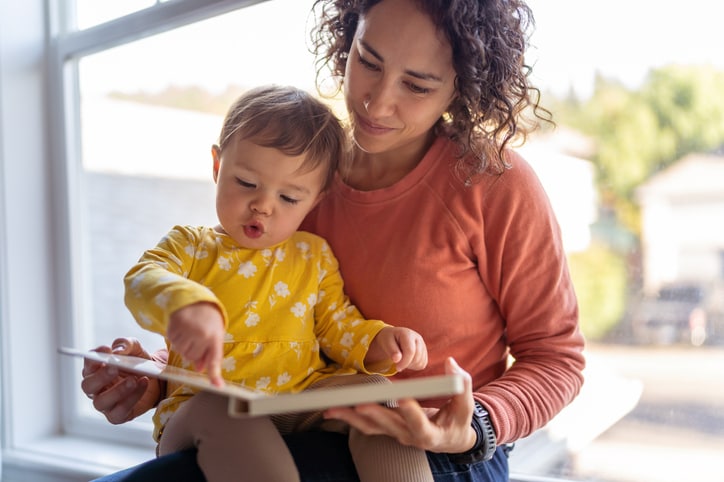The word babysitter can mean different things to different people. To some, it’s a high-school student who watches their children on date nights. To others, it’s the experienced uni student who’s there with their children for a few hours after school each day. Or maybe it’s the caregiver you rely on to get the kids to school a few days a week. Regardless, babysitters can be an integral part of your childcare team, especially for those who don’t need the full-time support of a nanny.
Before you begin the search for the perfect babysitter, it’s important to know exactly what type of caregiver you’re looking for because different types of babysitters can offer different things in terms of experience, qualifications and even availability.
Here’s what to know before you get started on your search for a babysitter.
Types of babysitters
The perfect babysitter can be anyone, from a neighbour down the street to an experienced former educator you found in a local community group. At the end of the day, the right babysitter for you is totally dependent on your family’s specific situation and needs – so the perfect candidate for you might look totally different for someone else. What’s key is that you have an understanding of what the different types of babysitters can offer.
High-school students
Babysitters in this age group are good matches for weekend and summer jobs. While they are typically the youngest of the available babysitters, that doesn’t necessarily mean they’re less capable. Ideally, a high-school babysitter will have participated in a training course or gotten their CPR certification, or at least have experience working with kids or other families. They should also live nearby, as some caregivers in this age group may not have their own transportation or a driver’s licence.
Uni students
Depending on their schedules, uni students may have more flexibility than other kinds of babysitters, though they may be unavailable during school holidays and could have a schedule that varies from semester to semester. Typically, uni-aged babysitters have more experience than high-school babysitters. For this reason, they may charge a higher hourly pay rate. But as a bonus, many babysitters in this age group are drawn to caregiving because they are training for future careers in education or early childhood development, meaning they may possess extra knowledge of how to interact and engage with children in meaningful ways.
Adult sitters
There are many kinds of adult babysitters. Some may be parents themselves who are looking to make income by caring for additional children. Others may be retired or former teachers, grandparents or even former day-care providers who are branching out into personalised care. While age implies more experience, it is still important to verify that adult babysitters have valued qualifications, like CPR training, just as you might with a younger babysitter. An adult babysitter may charge more, especially if they have training and experience in child-related fields. That said, they are also more likely to be available in the mornings and afternoons when other babysitters who have school or extracurricular activities are not available.
Traits to consider when looking for a babysitter
Although qualifications and experience are highly desirable, it’s equally important that you like your babysitter’s personality and that they can demonstrate a few key traits and qualities:
- Enthusiasm: The babysitter should genuinely enjoy caring for children and approach their work with an energy that shows they’re truly interested in the kids in their care.
- Initiative: The babysitter may not know the ins and outs of your household right away, but they should be able to jump right in, get the children engaged and anticipate their needs.
- Playfulness: The babysitter should possess the ability to play and know how to keep kids entertained. Look for someone who likes to get creative, set up scavenger hunts, do science experiments and make up plays, for example.
- Responsibility: No matter how much fun they’re having, the babysitter should still see to it that the kids get to bed on time and stick to the routine. Ultimately, parents need to know their children are in good hands, so the ability to stick to rules and routines is important.
- Professionalism: Babysitting, even in more casual scenarios, is a real job and should be taken seriously. The babysitter should be reliable, dedicated and have experience. A babysitter who lacks enthusiasm and seems to treat the job as an easy way of earning some extra cash is not the right one.
- Accountability: The babysitter should show up on time, live up to commitments and value the responsibility they have to your family. After all, you’re relying on them!
Basic babysitter duties
Babysitters are primarily hired to care for and entertain children, so they don’t typically take on additional duties, like cooking or household cleaning, that might fall under the purview of a full-time nanny. Still, it’s important to have a clear idea of what duties you do need your babysitter to take on and to communicate those right off the bat.
Typical babysitter duties include:
- Playing with children.
- Doing simple meal or snack prep and clearing away the dishes.
- Cleaning up play areas.
- Changing nappies.
- Helping with toilet training.
- Preparing bottles or baby food.
- Getting kids ready for bed.
Extra babysitter duties may require a higher pay rate and can include:
- Transporting children to and from activities or school.
- Helping with homework or tutoring.
- Preparing complex or highly specific meals and snacks (such as in the case of a food allergy or intolerance, for which it may be necessary to find a babysitter with additional experience).
- Doing any chores beyond basic tidying up of the areas and items used.
- Coming up with unique play ideas or educational activities.
If your children require highly specialised care, it could be that a professional nanny is better suited to your needs. In any case, communication is key in ensuring that your babysitter understands what’s expected of them and feels capable of being able to perform their duties.
So don’t blindside your babysitter with an endless list of responsibilities they weren’t expecting. They should be able to come into your home feeling comfortable and not as though everything is suddenly different to what was originally communicated.
Safety and childcare training to look for
While safety training and special certifications are not required of babysitters, knowing a caregiver is trained in how to handle an emergency provides great peace of mind to most parents. Here are some safety courses and certifications to look for.
Choking and CPR
It’s a huge plus if a caregiver has some form of Basic Life Support (BLS) training. This training includes CPR, what to do in cardiac emergencies and how to clear obstructed airways (choking).
Courses offered by the Australian Red Cross or the St John Ambulance will cover the training required to maintain breathing and circulation in an adult, child or baby. If a babysitter says they’ve received this training, you should ask to see a copy of their certification so you can verify that it is current, as trainees must be recertified every year.
Infant and childcare training
Sitter Train offers babysitting and childcare courses that cover babysitting basics, child safety, first-aid for children, how to have fun with kids and more. Alternatively, a sitter could do a certificate in childcare at a higher education institute.
Water safety training
Particularly if you’re hiring a summer babysitter or have a pool, it may be a good idea to find a babysitter with water safety training. Water safety training courses offered by Royal Life Saving Australia or a similar organisation are good to have, as you’ll know your babysitter is equipped with the skills they need to teach your children how to be safe around water and intervene should your child end up in a water emergency.

